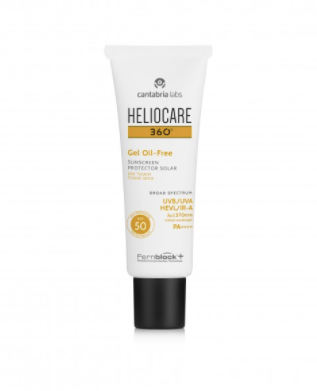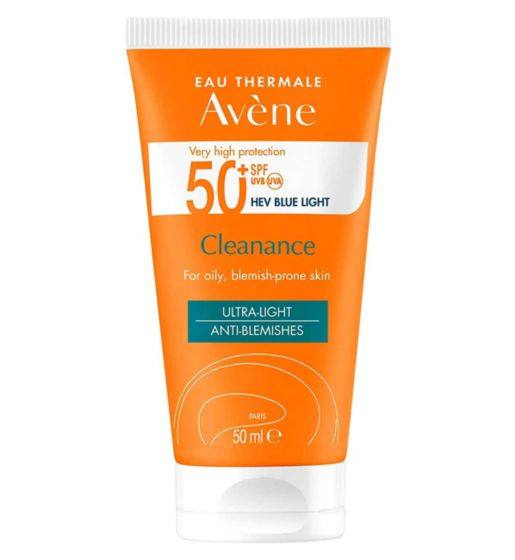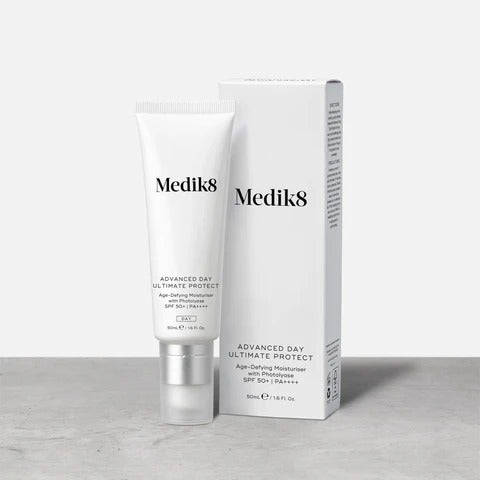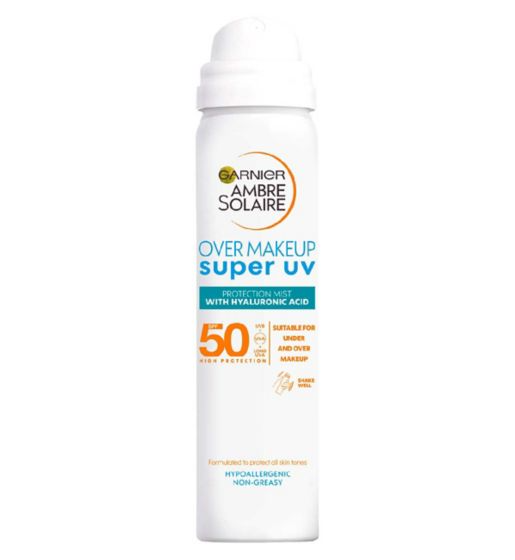How To Work Out Which Level Of Sun Protection You Should Be Using
Photographed by Nolan Rockie
We all know how important it is to wear sunscreen during the day. Dermatologists, beauty editors and skincare obsessives alike all extol the virtues of a daily slathering for protecting skin from skin cancer as well as keeping fine lines, wrinkles and pigmentation at bay. In other words, incorporating it into your routine is a no-brainer if you're serious about safeguarding your skin now and in the long run.
But recent research by Mintel has found that as many as 40% of skincare users find it difficult to know which level of sun protection to use on a daily basis. Even more interestingly? Under half of women use facial skincare products containing SPF because there is so much confusion around sun protection in general.
AdvertisementADVERTISEMENT
It's challenging. While we're now aware that SPF moisturiser might not provide us with the protection we initially thought and that sunscreen tablets can't replace topical versions, we still have questions: Is factor 15 ever enough or should you be applying factor 50 come rain or shine? And if you hardly spend any time in the sun, do you need to apply SPF at all? R29 asked two of the best dermatologists in the business to break it down.
Always choose a 'broad spectrum' sunscreen
Before pinpointing the factor, make sure that any sunscreen you consider buying is labelled 'broad spectrum'. This means it protects against UVA rays, traditionally associated with fine lines, wrinkles and pigmentation, and UVB rays, responsible for burns and melanoma. "This is important for two reasons," explains Dr Anjali Mahto, consultant dermatologist at Skin 55 and author of The Skincare Bible. "Firstly, to reduce the risk of developing skin cancers further down the line and secondly to prevent premature skin ageing."
Look at your skin tone
Your skin tone plays an incredibly important part in choosing a sunscreen that's going to be effective. Pale? Going below factor 30 won't do you any favours.
"Individuals with fair skin and hair, light-coloured eyes, freckles and moles are at highest risk of skin damage and should always use a minimum factor of 30 or 50," explains London-based consultant dermatologist Dr Justine Kluk, something Dr Mahto elaborates on. "Pigmented skin types – those which rarely burn and tan easily – usually Asian or black skin – are relatively more protected than fair skin types from UV radiation due to melanin. Therefore, wearing a sunscreen with SPF 15-30 is likely to be sufficient."
AdvertisementADVERTISEMENT
And if you're still confused? "As a general rule of thumb, opting for a broad-spectrum product of at least an SPF 30 is useful for nearly all skin types," concludes Dr Mahto, who recommends Avène's Cleanance High Protection SPF 30 Cream, £17.50, and Heliocare's 360 Gel Oil-Free SPF 50, £31, in particular.
Take your lifestyle into consideration
"'SPF' is only a marker of protection against UVB radiation, which penetrates the skin," explains Dr Mahto. "UVA also needs to be considered as this is the wavelength of light which can penetrate window glass and cloud cover." That's right – while we're not blessed with year-round sun in the UK and many of us might not think we need to wear sunscreen when it's dull and cold outside, if UVA rays can penetrate glass, then they can penetrate clouds, as Dr Kluk says. "Harmful UV rays may still be present on overcast or cloudy days. In fact, 90% of UV can pass through light cloud."
Applying sunscreen is even more important if you spend time outside. "If you walk to work, participate in outdoor sport, or work outside, then lifestyle factors need to be taken into account and sunscreen should be worn daily," explains Dr Mahto. "The amount of sunlight reaching the skin will vary depending on altitude (levels are increased at higher altitudes) and time of day. But if skin ageing is a concern for you, then it is worth wearing sunscreen – a minimum factor 30 – throughout the year." That said, Dr Kluk hits home that very high factor sunscreens should not be used as an excuse to stay outside longer.
AdvertisementADVERTISEMENT
Evaluate your skincare routine
You should also take the rest of your skincare routine into consideration when deciding whether to apply sunscreen. A dermatologist will always encourage you to wear it regardless, but if you regularly use retinol or chemical exfoliators, such as acids, your skin is likely to be more sensitive to UV light and therefore more prone to skin damage. If this is the case, be sure to wear sunscreen – at least factor 30 – every day. R29 recommends Medik8's Advanced Day Ultimate Protect SPF 50+ PA++++, £59, and Garnier's Ambre Solaire Sensitive Face Sun Cream Mist SPF 50, £8.
Refinery29's selection is purely editorial and independently chosen – we only feature items we love! As part of our business model we do work with affiliates; if you directly purchase something from a link on this article, we may earn a small amount of commission. Transparency is important to us at Refinery29, if you have any questions please reach out to us.
AdvertisementADVERTISEMENT










